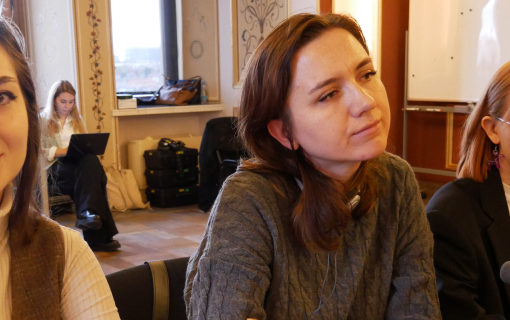International NGO Releases Survey Findings on Women’s Political Standing in Morocco
The International Foundation for Electoral Systems and the Institute for Women’s Policy Research present data as part of SWMENA project
RABAT—A national survey on attitudes towards the political, economic, social and legal status of women in Morocco released today by the International Foundation for Electoral Systems (IFES) and the Institute for Women’s Policy Research (IWPR) shows that while women’s political and civic participation is low, there is relatively high support for gender quotas on behalf of both sexes. The survey, however, indicated that men are much less supportive than women of the Family Law or Moudawana.
The survey was conducted as part of IFES’ Status of Women in the Middle East and North Africa (SWMENA) project, which seeks to propel the efforts of local nonprofits working to improve the standing of women in the MENA region. The first phase of the project is to acquire scientific survey data in three countries- Lebanon, Morocco, and Yemen- to accurately identify and properly address the areas of greatest need for women. The second phase of the project is to deliver the data to local nonprofit advocacy groups or individuals who focus on women’s issues and train them to use the information to better advance their goals. The survey findings and training to effectively use them were presented to local groups on June 21 and 22 in Rabat. Participants included representatives from NGOs and Ministries, as well as academics and parliamentarians.
Survey results indicate that women’s participation in the municipal elections in June 2009 was lower than men’s. Indeed, 45% of surveyed women report having cast a vote in the June 2009 municipal elections versus a higher proportion of men (57%) who voted in these elections. This means that the majority of Moroccan women (54%) did not participate in the June 2009 municipal elections and that there is a gender gap in voter participation in Morocco.
The survey also found that there is a relatively high support for the system of gender quotas that is currently adopted in Parliament. Support is slightly higher among women with seven in 10 women in favor versus six in 10 men. Over a third of men are opposed to the system of gender quotas compared with only 17% of women. The survey, however, indicated that knowledge of gender quotas remains significantly low among ordinary Moroccan citizens at large.
When asked if they would voluntarily vote for a woman candidate in parliamentary elections if the gender quota was not used in Morocco, women showed more willingness to vote for woman candidates while men gave only conditional support: seven in 10 women said yes, they would vote for a woman candidate if the system of gender quotas was not in place versus only four in 10 men. Thirteen percent of men said no, they would not vote for a woman candidate if the system of gender quotas was not in place. None of the women respondents said no.
Asked about their opinions towards the Family Law (Moudawana), women showed much higher support for the law than men (85% vs. 59%). Most men who oppose the Moudawana believe the law negatively impacts them, exaggerates the spouse’s demands, and is opposed to their religious beliefs. The top two reasons women gave for their dissatisfaction with the law involve their disappointment with the practice and enforcement of the Family Law and the feeling that its slow implementation does not do enough for the rights of women.
Of related interest when considering both political as well as economic activities of women, thirty percent of women report that they are limited in their ability to leave the house without permission. Restricted movement is greater for young women (44% of 18-24 year olds) than older women (18% of those age 55 and older), as well as for women who do not work for pay (31%) compared to women who do work for pay (15%). Meanwhile, although relatively fewer women work for pay (10%) compared to men (69%), the wages paid to women and men are virtually the same.
Other data reveals opinions on highly salient issues including violence against women, women’s financial freedom, social autonomy, and access to healthcare.
At the end of the workshop, the participants issued numerous recommendations that included: creation of targeted public awareness campaigns to inform women about new or existing laws, especially in areas where there may be a language barrier; urging women’s advocacy NGOs to use media as a tool to reach out to women; and working towards reforming education policy to be more inclusive and feasible in order to combat illiteracy. Additional recommendations will be included in the comprehensive country report which will be issued later this year.
The findings are disaggregated by gender, age and education levels in order to better understand the population. Topic briefs summarizing the Morocco survey findings are located at www.swmena.org in both English and French.
For more information, please contact:
John Lawrence, Manager, Communications and Advocacy, IFES
jlawrence@ifes.org 202-262-0025
###
The International Foundation for Electoral Systems (IFES) is the world’s premiere election assistance organization, providing countries with technical advice and tools to run democratic elections.









